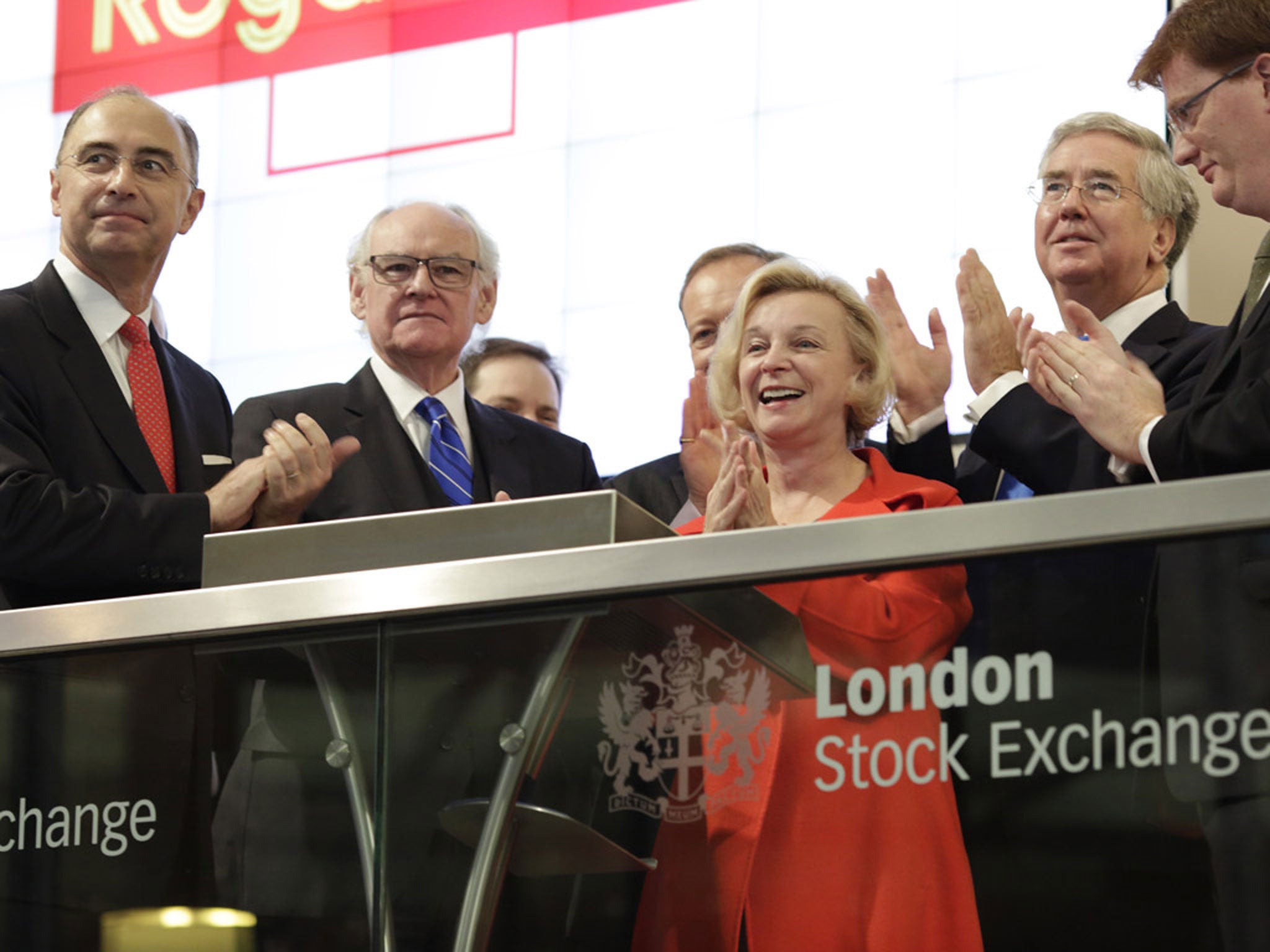Why the residents of Benefits Street and Moya Greene, the Royal Mail chief executive worth upwards of £1.5m, are not so different after all
It's not just the poor who are subject to occasional feelings of entitlement


Your support helps us to tell the story
From reproductive rights to climate change to Big Tech, The Independent is on the ground when the story is developing. Whether it's investigating the financials of Elon Musk's pro-Trump PAC or producing our latest documentary, 'The A Word', which shines a light on the American women fighting for reproductive rights, we know how important it is to parse out the facts from the messaging.
At such a critical moment in US history, we need reporters on the ground. Your donation allows us to keep sending journalists to speak to both sides of the story.
The Independent is trusted by Americans across the entire political spectrum. And unlike many other quality news outlets, we choose not to lock Americans out of our reporting and analysis with paywalls. We believe quality journalism should be available to everyone, paid for by those who can afford it.
Your support makes all the difference.There is a lot of talk about entitlement at the moment, but I'd like to focus not on Benefits Street, but on a much more salubrious thoroughfare, Executive Boulevard. Here stands the home of Ms Moya Greene, who is the CEO of Royal Mail. Ms Greene, Canadian by birth, is highly regarded by her peers, and, whatever one's political or ethical view of the floatation of the Royal Mail, she is deemed to have executed this tricky procedure with aplomb.
She is credited with the transformation of the Royal Mail from a loss-making state-owned business into a modern, profitable, privatised company (in which we taxpayers still have a 30 per cent stake). So it seems there cannot be much argument that Ms Greene is a successful, effective and decisive corporate boss. And it follows that Royal Mail would be well advised to hold on to her. Which brings us to the comments made by Donald Brydon, chairman of the newly-privatised company.
He has said that Ms Greene's pay should be raised, both to reward her performance and also to reflect the market rate. This, he says, is “a necessary part of making sure we keep her”, adding that his CEO was “the lowest paid chief executive in the FTSE100”. At this point, we should remind ourselves how much Moya Greene earned last year. Her basic pay was £498,000, but when bonus payments and pension contributions are taken into account, her total package amounted to £1.5m. (She had been also given £250,000 as a housing allowance, but Ms Greene declined to take this in the face of a public outcry.)
Now, I'm not trying to score the obvious point about executive pay - since when did £1.5m constitute being badly paid? - and it's true that Ms Greene earns considerably less than other, far less effective, FTSE100 bosses. My interest in this debate is more philosophical. How much is enough? A very serious study at Princeton University a few years ago suggested that a salary of around £50,000 was the optimum salary to bring both day-to-day contentment and a sense of satisfaction about one's place in the world. The thought was that people are happier the more money they earn until they hit £50,000. After that point, they just accumulate more material possessions without any rise in their happiness quotient.
The high taxation of some Scandinavian countries, where there is widespread recognition of the fact that personal wealth does not equate to personal happiness, contributes to social cohesion.
It's fair to ask whether another half a mill (or more) a year is really going to make much difference to Moya Greene. Sure, it will stop her feeling the poor relation of other CEOs, but it may not - in fact, probably will not - make her wake up any happier in the morning. But what it will do is satisfy her sense of entitlement. There are a whole number of reasons Ms Greene she, and her chairman, should feel that she deserves a bigger wedge every month. I am entitled to it, she'd say to herself. And, in the end, in raw essence, that is very same impulse that drives the inhabitants of Benefits Street.
Join our commenting forum
Join thought-provoking conversations, follow other Independent readers and see their replies
Comments